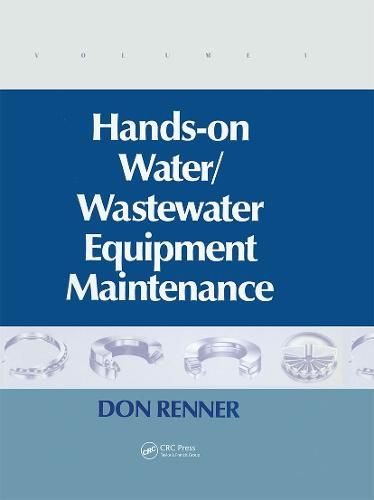Readings Newsletter
Become a Readings Member to make your shopping experience even easier.
Sign in or sign up for free!
You’re not far away from qualifying for FREE standard shipping within Australia
You’ve qualified for FREE standard shipping within Australia
The cart is loading…






Tremendous improvements in ground-water sampling methodologies and analytical technologies have made it possible to collect and analyze truly representative samples to detect increasingly lower levels of contaminants now in the sub-parts-per-billion range. Though these new methods produce more accurate and precise data and are less expensive, many companies and government agencies are reluctant to update their sampling protocols and regulations claiming the transition would be too costly.
The Essential Handbook of Ground-Water Sampling clearly details the economic and scientific case for adopting these new methodologies. Citing examples of unnecessary expenditure due to the inaccuracy of out-dated techniques, the editors point out that the expense of making incorrect decisions based on poor quality samples clearly negates any savings that might be realized by using older, more inefficient, and effectively short-sighted, methods. Using numerous figures, tables, and references to recent research, the editors explain the efficiency of utilizing newer, more accurate, techniques that produce higher quality data. The text provides a detailed discussion of every aspect of ground-water sampling from the development of a sampling and analysis plan, through sample collection, pretreatment, handling, shipping, and analysis, to the documentation, interpretation, and presentation of ground-water quality data.
Successful sampling events and accurate data provide a sound foundation for making important, potentially expensive decisions regarding site monitoring, risk assessment, remediation, and closure. Armed with the information presented in this handbook, environmental professionals will be able to make sound technological and economic decisions regarding the choice of sampling equipment, methodologies, and procedures to meet their site-specific objectives and ensure the success of their ground-water sampling programs.
$9.00 standard shipping within Australia
FREE standard shipping within Australia for orders over $100.00
Express & International shipping calculated at checkout
Stock availability can be subject to change without notice. We recommend calling the shop or contacting our online team to check availability of low stock items. Please see our Shopping Online page for more details.
Tremendous improvements in ground-water sampling methodologies and analytical technologies have made it possible to collect and analyze truly representative samples to detect increasingly lower levels of contaminants now in the sub-parts-per-billion range. Though these new methods produce more accurate and precise data and are less expensive, many companies and government agencies are reluctant to update their sampling protocols and regulations claiming the transition would be too costly.
The Essential Handbook of Ground-Water Sampling clearly details the economic and scientific case for adopting these new methodologies. Citing examples of unnecessary expenditure due to the inaccuracy of out-dated techniques, the editors point out that the expense of making incorrect decisions based on poor quality samples clearly negates any savings that might be realized by using older, more inefficient, and effectively short-sighted, methods. Using numerous figures, tables, and references to recent research, the editors explain the efficiency of utilizing newer, more accurate, techniques that produce higher quality data. The text provides a detailed discussion of every aspect of ground-water sampling from the development of a sampling and analysis plan, through sample collection, pretreatment, handling, shipping, and analysis, to the documentation, interpretation, and presentation of ground-water quality data.
Successful sampling events and accurate data provide a sound foundation for making important, potentially expensive decisions regarding site monitoring, risk assessment, remediation, and closure. Armed with the information presented in this handbook, environmental professionals will be able to make sound technological and economic decisions regarding the choice of sampling equipment, methodologies, and procedures to meet their site-specific objectives and ensure the success of their ground-water sampling programs.